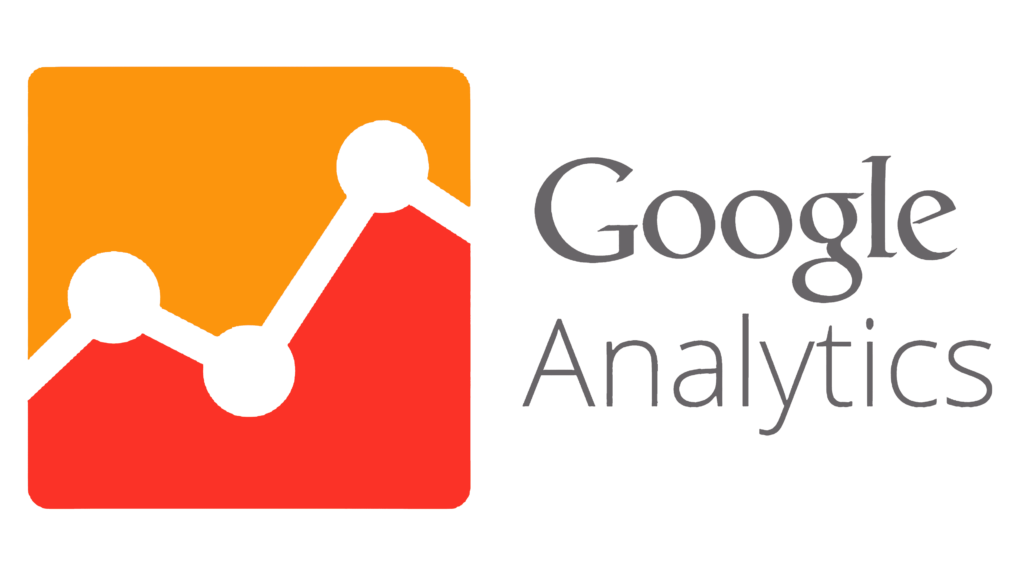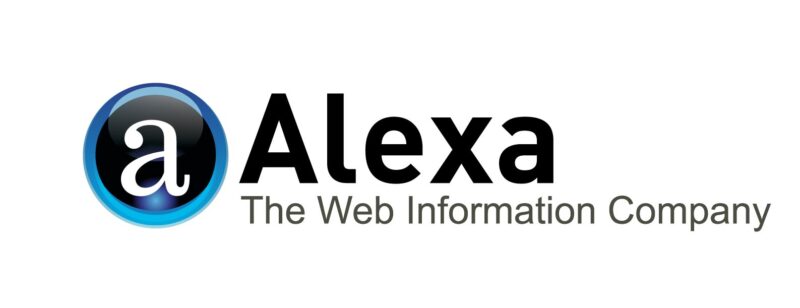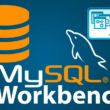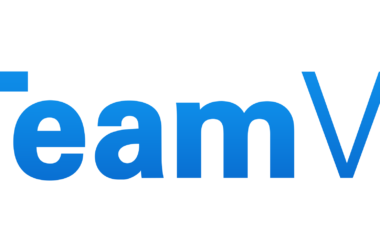In the realm of digital analytics, Alexa.com stands as a stalwart, offering a comprehensive suite of tools to analyze website traffic, conduct competitive research, and refine digital strategies. Let’s delve deeper into what makes Alexa.com a significant player, examining its features, recognizing its limitations, and understanding why the exploration of Alexa.com alternatives has become crucial.
Features of Alexa.com

Alexa.com boasts a range of features designed to empower businesses and individuals alike:
Competitive Analysis
Alexa.com shines in competitive analysis, enabling businesses to benchmark their digital performance against industry rivals. By dissecting competitor strategies, users gain valuable insights to refine their own approaches and stay ahead in the digital race.
Keyword Research
In the intricate world of Search Engine Optimization (SEO), keywords reign supreme. Alexa.com provides a robust platform for conducting in-depth keyword research, allowing users to optimize their content effectively and enhance their search engine visibility.
Audience Demographics
Understanding the audience is pivotal for tailored content creation. Alexa.com excels in providing demographic data, aiding businesses in crafting strategies that resonate with their target demographic.
Limitations of Alexa.com
Despite its robust features, Alexa.com has some limitations worth considering:
Limited Free Version
While Alexa.com offers a free version, its capabilities are somewhat restricted. To unlock the full spectrum of features and harness the tool’s true potential, users often find themselves compelled to subscribe to the premium version.
Accuracy Concerns
Alexa.com provides estimates of website traffic, but the accuracy may vary, especially for sites with lower traffic volumes. Users should interpret the data with a discerning eye and cross-reference it with other sources for a more comprehensive understanding.
Global Focus
The tool tends to emphasize global rankings, potentially overlooking the nuances of local audiences. This could pose a challenge for businesses with a predominantly regional or local focus.
The Need for Alexa.com Alternatives

In the dynamic landscape of the internet, the need for Alexa.com alternatives goes beyond a simple desire for change. As businesses and individuals strive for more tailored, precise, and feature-rich analytics, the exploration of alternatives becomes imperative. Let’s dissect the multifaceted reasons prompting the search for these Alexa.com alternatives.
1. Diverse Analytical Needs
Every business or individual has unique analytical needs. While Alexa.com excels in certain areas, its suite of features might not comprehensively address the diverse requirements of all users. The quest for Alexa.com alternatives becomes a pursuit of a tool that aligns seamlessly with specific and varied analytical needs.
Adapting to Industry-specific Metrics
Industries often have metrics and key performance indicators unique to their nature. Companies seek Alexa.com alternatives that can cater to industry-specific analytical requirements, ensuring a more nuanced understanding of performance and audience behavior.
Navigating Content-centric Strategies
Content is king, and for businesses with a content-centric approach, the need for Alexa.com alternatives arises from the desire for tools that offer enhanced content analysis. This includes detailed insights into user engagement, content performance, and strategies for content optimization.
2. Evolving Digital Strategies
Digital strategies are not static; they evolve with the ever-changing landscape of online platforms and user behavior. Businesses and individuals require analytics tools that can adapt and grow alongside these strategies. The need for Alexa.com alternatives arises from a desire for tools that offer flexibility, scalability, and innovation in line with evolving digital landscapes.
Integrating Emerging Technologies
With the emergence of new technologies such as voice search, augmented reality, and AI-driven interactions, businesses seek Alexa.com alternatives that can seamlessly integrate these advancements into their analytics. The need to stay ahead of the technological curve propels the exploration of tools offering compatibility with emerging trends.
Addressing Multichannel Marketing
As marketing strategies extend across various channels, from social media to email campaigns, the need for Alexa.com alternatives stems from a desire for tools that provide holistic insights into multichannel performance. Users look for analytics platforms that can effectively track and analyze data from diverse marketing channels.
3. Budgetary Considerations
For many users, the decision to explore alternatives is rooted in budgetary considerations. While Alexa.com offers a range of features, the cost associated with accessing its full suite may not be feasible for all. The search for Alexa.com alternatives involves finding tools that strike a balance between affordability and functionality.
Scaling Features with Budget Constraints
Budget-conscious users look for alternatives that offer scalable pricing models, allowing them to access advanced features as their needs grow. The exploration of Alexa.com alternatives involves finding tools that can accommodate evolving requirements without a disproportionate increase in costs.
Exploring Free and Freemium Alexa.com Alternatives
In the quest for budget-friendly options, users often explore alternatives that offer free or freemium versions. The desire to maximize value within budgetary constraints prompts the exploration of tools that provide essential functionalities without a hefty price tag.
4. Desire for Specialized Functionality
As the digital sphere becomes more intricate, the demand for specialized functionality increases. Users seek Alexa.com alternatives that not only match the general capabilities of Alexa.com but also provide niche features catering to specific aspects of digital analytics. The need for specialized tools prompts the exploration of alternatives that offer a more tailored approach.
Focusing on Niche Markets
Certain businesses operate in niche markets with unique challenges and opportunities. The need for alternatives arises from a desire for tools that specialize in addressing the intricacies of these niche markets, providing insights and solutions specific to the industry.
Incorporating Advanced SEO Capabilities
For users heavily invested in SEO strategies, the exploration of Alexa.com alternatives involves seeking tools with advanced SEO capabilities. This includes features such as in-depth backlink analysis, keyword tracking, and SEO auditing, catering to users aiming for top-notch search engine optimization.
Commonly Used Alexa.com Alternatives For Comprehensive Website Analytics

In the expansive realm of website analytics, several Alexa.com alternatives offer a diverse range of features, catering to the nuanced needs of businesses and individuals. Let’s explore these alternatives in greater detail, understanding their unique strengths and capabilities.
1. SimilarWeb
SimilarWeb emerges as a formidable Alexa.com alternative, providing a holistic approach to website analytics. It goes beyond mere traffic metrics, offering insights into traffic sources, user engagement, and detailed audience behavior analysis. The platform’s robust competitive analysis tools empower users to stay ahead of industry trends and competitors, ensuring a comprehensive understanding of the digital landscape.
Distinct Features:
SimilarWeb’s competitive analysis tools stand out as a pillar of strength, providing users with the means to dissect and comprehend the strategies of industry rivals. Its comprehensive audience demographics further contribute to the platform’s appeal, aiding businesses in crafting precisely targeted marketing strategies. Additionally, SimilarWeb’s ability to offer global and regional traffic insights makes it an invaluable asset for those with diverse audience bases.
2. Quantcast
Quantcast specializes in audience measurement and real-time advertising solutions, making it a compelling Alexa.com alternative. The platform’s real-time data capabilities provide up-to-the-minute insights into user behavior, empowering businesses to make timely and informed decisions. Its focus on in-depth audience segmentation adds a layer of sophistication, allowing for precise targeting in marketing strategies.
Distinct Features:
Quantcast’s real-time data capabilities serve as a beacon for those in need of instantaneous insights. The platform’s emphasis on in-depth audience segmentation aligns with the growing demand for personalized marketing strategies. Furthermore, Quantcast facilitates competitive benchmarking, enabling businesses to gauge their performance against industry rivals and stay ahead in the competitive digital landscape.
3. Compete.com
Compete.com, a purveyor of competitive intelligence, establishes itself as a noteworthy Alexa.com alternative with its focus on website traffic analytics, audience insights, and industry benchmarking. The platform excels in providing precise traffic analytics, offering users a detailed understanding of their digital reach. Its commitment to industry benchmarking adds a valuable dimension, allowing businesses to measure their performance against established standards.
Distinct Features:
Compete.com’s precision in providing traffic analytics contributes to its appeal, offering users accurate and detailed insights into their website’s performance. The platform’s commitment to industry benchmarking becomes a strategic tool, aiding businesses in assessing their standing within the broader market. Additionally, Compete.com’s insights into user engagement metrics further enrich its offering, facilitating the refinement of content strategies.
4. SEMrush
SEMrush, renowned for its SEO focus, extends its capabilities to encompass comprehensive website analytics. It emerges as a versatile Alexa.com alternative, covering a spectrum of insights, including traffic analytics, keyword research, and backlink analysis. Its extensive keyword database becomes a cornerstone for users navigating the intricacies of search trends.
Distinct Features:
SEMrush’s extensive keyword database stands out as a beacon for users immersed in the world of SEO, providing a comprehensive understanding of search trends. The platform’s backlink auditing tools offer robust capabilities, ensuring the health of a website’s link profile. Moreover, SEMrush’s foray into social media analytics adds a holistic dimension, offering users insights beyond traditional website metrics.
5. Ahrefs
Ahrefs, primarily recognized as an SEO tool, establishes itself as a powerhouse offering detailed insights into website traffic, keywords, and backlinks. Its comprehensive backlink analysis capabilities make it an indispensable choice for digital marketers aiming to refine their link-building strategies.
Distinct Features:
Ahrefs’ strength lies in its ability to provide a detailed analysis of a website’s backlink profile, offering insights into the quality and quantity of incoming links. The platform’s keyword rank-tracking functionality allows users to monitor their performance in search engine results. Furthermore, Ahrefs includes site audit capabilities, ensuring websites are optimized for search engines and meet the highest SEO standards.
6. Moz
Moz, a popular SEO tool, extends its prowess to website analytics, offering insights into keyword rankings, backlinks, and site audits. Businesses seeking a holistic view of their digital performance often turn to Moz for its comprehensive suite of SEO-centric features.
Distinct Features:
Moz’s keyword tracking and analysis tools provide businesses with a strategic edge, allowing them to stay ahead in the competitive SEO landscape. The platform’s page optimization suggestions offer actionable insights to enhance individual page performance. Additionally, Moz aids in monitoring and managing the backlink profile, a critical aspect of maintaining a healthy and authoritative online presence.
7. Google Analytics
While not a direct competitor to Alexa.com, Google Analytics remains an essential powerhouse for website analytics. Its user-friendly interface, customizable dashboards, and integration with other Google services make it a go-to choice for businesses seeking comprehensive insights into user behavior and traffic sources.
Distinct Features:
Google Analytics stands out for its user-friendly interface, ensuring accessibility for users with varying levels of technical expertise. The platform’s customizable dashboards allow businesses to tailor analytics to their specific needs. Furthermore, Google Analytics seamlessly integrates with other Google services, providing a comprehensive digital ecosystem for businesses to leverage.
Factors To Consider While Choosing The Perfect Alexa.com Alternative

As the digital landscape expands, the quest for the perfect Alexa.com alternative requires meticulous consideration of various factors. Choosing the right analytics tool is a strategic decision that can significantly impact the effectiveness of your digital strategies. Let’s delve into key considerations that should guide your selection process.
1. Pricing Structure
The pricing structure of an analytics tool plays a pivotal role in the decision-making process. While Alexa.com may have its pricing model, alternatives offer a spectrum of options. It’s essential to evaluate how each alternative aligns with your budgetary constraints while ensuring it delivers the desired value.
Scaling Features with Budget Constraints
Budget-conscious users often seek Alexa.com alternatives that offer scalable pricing models. This allows them to access advanced features as their needs grow without experiencing a disproportionate increase in costs. The ability to scale features within budget constraints ensures a sustainable and cost-effective solution.
Exploring Free and Freemium Alternatives
For those mindful of budget considerations, exploring Alexa.com alternatives that offer free or freemium versions becomes a viable strategy. This approach allows users to assess essential functionalities without a significant financial commitment. Maximizing value within budgetary constraints is a crucial aspect of the decision-making process.
2. Feature Set
The breadth and depth of features offered by each Alexa.com alternative should align with your specific analytical needs. Beyond the basic metrics provided by Alexa.com, alternatives offer diverse feature sets catering to various aspects of website analytics. Prioritize tools that not only match your current requirements but also have the flexibility to accommodate your evolving needs.
Adapting to Industry-specific Metrics
Industries often have metrics and key performance indicators unique to their nature. A comprehensive feature set should encompass industry-specific analytics, ensuring a more nuanced understanding of performance and audience behavior. The ability to adapt to specialized metrics positions an alternative as a strategic asset.
Navigating Content-centric Strategies
For businesses with a content-centric approach, the feature set should go beyond traffic metrics. Alexa.com alternatives that offer enhanced content analysis, detailed insights into user engagement, and strategies for content optimization become essential. A robust feature set tailored to content strategies ensures a more comprehensive approach to digital analytics.
3. User Interface
The user interface (UI) of an analytics tool is more than just an aesthetic consideration; it significantly impacts the overall user experience. Opt for an alternative with an intuitive and user-friendly interface, minimizing the learning curve and maximizing productivity. An intuitive UI enhances accessibility and ensures that users can harness the full potential of the tool without unnecessary complexity.
Enhancing User Experience with Intuitive Design
A well-designed user interface enhances the overall user experience, allowing users to navigate the analytics tool effortlessly. Intuitive design elements contribute to a positive user experience, reducing the time spent on learning and increasing the efficiency of analytical workflows. The user interface becomes a crucial aspect of the tool’s usability.
Customization for Varied User Preferences
Different users have varying levels of technical expertise and preferences. The ideal alternative should offer customization options, allowing users to tailor the interface to their specific needs. Customizable dashboards and settings contribute to a personalized user experience, ensuring that each user can optimize their workflow.
4. Data Accuracy
In the realm of analytics, precision is paramount. Choosing an alternative with a proven track record for providing accurate and reliable data is essential for informed decision-making. Consider the reputation of each alternative regarding data accuracy and reliability, as inaccurate data can lead to misguided strategies and decisions.
Ensuring Precision in Analytics
Accurate analytics hinge on the precision of the data provided by the chosen tool. Users should prioritize alternatives with a reputation for delivering precise and reliable data, minimizing the risk of misinterpretation. Rigorous data accuracy ensures that strategic decisions are based on a solid foundation of information.
Cross-referencing Data for Comprehensive Insights
While analytics tools strive for accuracy, cross-referencing data with multiple sources adds an extra layer of confidence. Users should adopt a comprehensive approach, cross-referencing analytics data from the chosen alternative with other reliable sources. This practice ensures a holistic and validated understanding of digital performance.
5. Customer Support
Responsive customer support is a crucial aspect of any analytics tool. Consider the support system offered by each alternative, ensuring it meets your expectations in terms of accessibility and assistance. Robust customer support becomes invaluable, especially in scenarios where users encounter challenges, require clarifications, or seek guidance on maximizing the tool’s capabilities.
Prioritizing Responsive Support Systems
Responsive customer support is a lifeline for users navigating the complexities of analytics tools. Prioritize alternatives with support systems that offer timely and effective assistance. Accessibility to knowledgeable support personnel enhances the overall user experience and ensures that users can overcome challenges seamlessly.
Leveraging Educational Resources and Documentation
Beyond direct support, the availability of educational resources and comprehensive documentation is a key consideration. Alternatives that provide users with access to tutorials, guides, and documentation contribute to user empowerment. A wealth of educational resources ensures that users can independently navigate and optimize their use of the analytics tool.
Conclusion
In the dynamic landscape of digital analytics, the search for the perfect Alexa.com alternative transcends a mere quest for substitution. It is a pursuit of precision, reliability, and tailored functionality. Each alternative discussed above brings unique strengths to the table, catering to different facets of website analytics. As you navigate this diverse landscape, consider your specific needs, budget constraints, and desired features to find the alternative that seamlessly integrates into your digital strategy.









